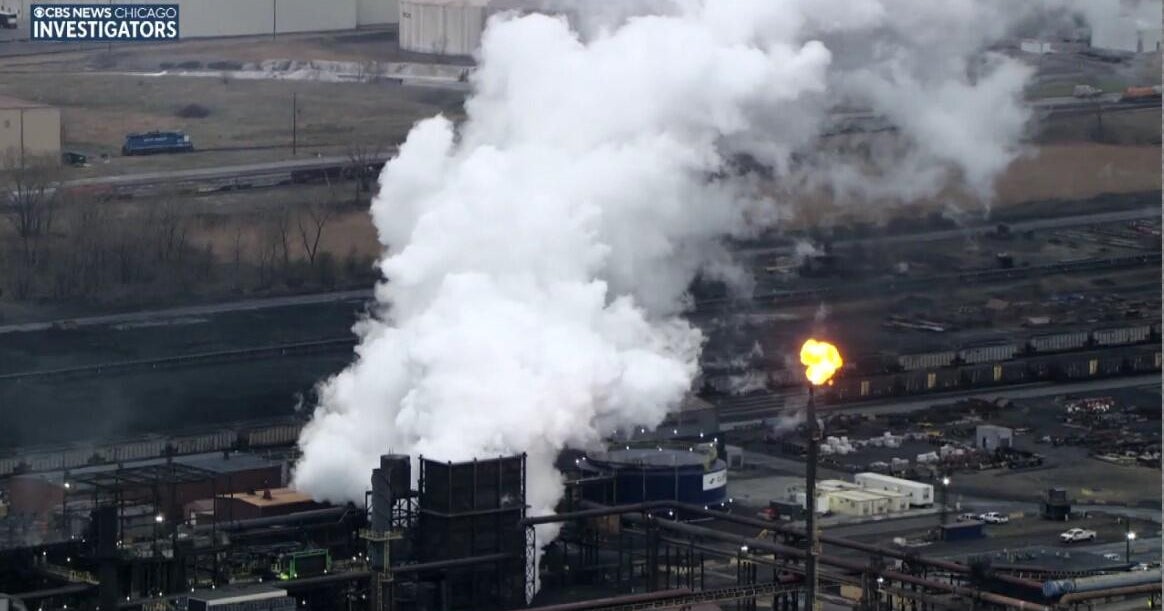The government wants companies to disclose their risks from climate change
Financial regulators have unveiled sweeping new rules that would require companies to disclose the greenhouse gas emissions they produce and how climate risk affects their business — part of a drive from the Biden administration to address climate change.
Under the rules, proposed Monday by the U.S. Securities and Exchange Commission, publicly traded companies would have to report on their climate risks, including the costs of moving away from fossil fuels, as well as risks related to the physical impact of storms, drought and higher temperatures caused by global warming. They would be required to lay out to shareholders their transition plans for managing climate risk, how they intend to meet climate goals and progress made, and the impact of severe weather events on their finances.
Companies that have made climate-related pledges will need to provide specifics on how they're meeting those goals.
The number of investors seeking more information on risk related to global warming has grown dramatically in recent years, as the cost of severe weather disasters has skyrocketed into hundreds of billions of dollars annually. Many companies already provide climate-risk information voluntarily, but climate activists and investors have criticized some disclosures as being inconsistent and lacking detail, sometimes amounting to "greenwashing."
The idea behind the SEC's proposal is that, with uniform required information, investors would be able to compare companies within industries and sectors.
"Today, investors representing literally tens of trillions of dollars support climate-related disclosures because they recognize that climate risks can pose significant financial risks to companies, and investors need reliable information about climate risks to make informed investment decisions," SEC Chairman Gary Gensler said in a statement.
Direct and indirect emissions
The required disclosures would include greenhouse gas emissions produced by companies directly or indirectly — such as from consumption of the company's products, vehicles used to transport products, employee business travel and energy used to grow raw materials.
The SEC issued voluntary guidance in 2010, but this is the first time mandatory disclosure rules were put forward.
Climate activists and investor groups have clamored for mandatory disclosure of information that would be uniformly required of all companies. Advocates estimate that excluding companies' indirect emissions, also called Scope 3 emissions, would leave out some 75% of greenhouse gas emissions.
The rules were opened to a public comment period of around 60 days. They are likely to be modified before any final adoption, observers say.
Climate activists praised the proposed rule for public companies.
"Investors deserve all the information they need to properly assess financial risks," said Mike Litt, consumer campaigns director at US PIRG. "Americans' retirement accounts and other savings could be endangered if we don't acknowledge potential liabilities caused by climate change and take them seriously. The Great Recession showed us what can happen when government regulators and Wall Street ignore risks and don't disclose them to the public."
On the other hand, major business interests and Republican officials — reaching down to the state level — began mobilizing against the climate disclosures long before the SEC unveiled the proposed rules Monday, exposing the sharply divided political dynamic of the climate issue.
Hester Peirce, the sole Republican among four SEC commissioners, voted against the proposal, which passed on a 3-1 vote. "We cannot make such fundamental changes without harming" companies, investors and the SEC, she said. "The results won't be reliable, let alone comparable."
Pushback from conservatives is likely to water down the rules before final adoption, according to Cowen analyst Jaret Seiberg.
"This is not the last word on climate disclosures," he said in a research note. "Expect progressives to demand more and conservatives to complain that the SEC is overstepping its jurisdiction and contributing to high energy costs."
Government-wide effort to slow climate change
The SEC action is part of a government-wide effort to identify climate risks, with new regulations planned from various agencies touching on the financial industry, housing and agriculture, among other areas. President Joe Biden issued an executive order last year calling for concrete steps to blunt climate risks, while spurring job creation and helping the U.S. reduce greenhouse gas emissions that contribute to climate change.
Biden has made slowing climate change a top priority and has set a target to cut U.S. greenhouse gas emissions by as much as 52% below 2005 levels by 2030. He also has said he expects to adopt a clean-energy standard that would make electric power carbon-free by 2035, along with the wider goal of net-zero carbon emissions through the economy by 2050.
A report issued last fall by the Financial Stability Oversight Council, a group of top federal regulators including the Federal Reserve and the Treasury Department, warned that climate change posed risks to financial institutions and the financial system. A government watchdog last year also found that pensions and 401(k) plans were vulnerable to climate risks, while the costs of disasters could increase losses to companies and the broader economy.
The premier business lobby, the U.S. Chamber of Commerce, and the American Petroleum Institute, the oil industry's top trade group, maintain that the SEC is reaching beyond its authority with the mandatory reporting rules, and that they would put substantial costs on businesses.
Tom Quaadman, the Chamber's executive vice president for Capital Markets Competitiveness, said that the rules required too much information from companies that was not "material" to their financial performance. "Any required disclosures under securities laws must meet the test of materiality, and we will advocate against provisions of this proposal that deviate from that standard or are unnecessarily broad," Quaadman said in an emailed statement.
The threat that opponents could take the SEC to court over the regulations has loomed.
Last June, a group of 16 Republican state attorneys general, led by Patrick Morrisey of West Virginia, raised objections in a letter to SEC Chairman Gensler. "Companies are well positioned to decide whether and how to satisfy the market's evolving demands, for both customers and investors," they said. "If the (SEC) were to move forward in this area, however, it would be delving into an inherently political morass for which it is ill-suited."
Morrisey previously threatened to sue the SEC over expanded disclosures from companies of environmental, social and governance information.
With reporting by CBS News' Irina Ivanova.



